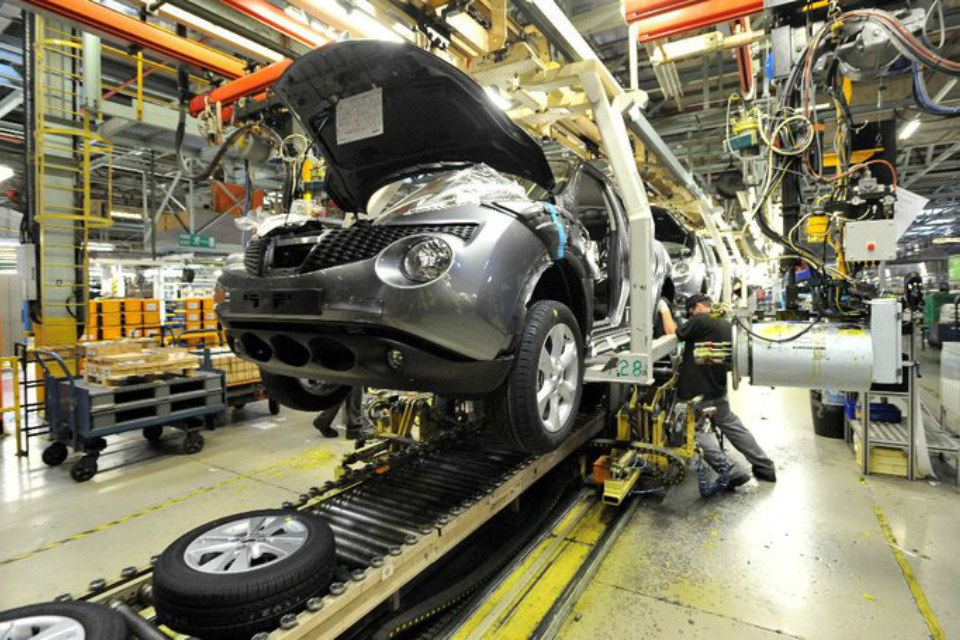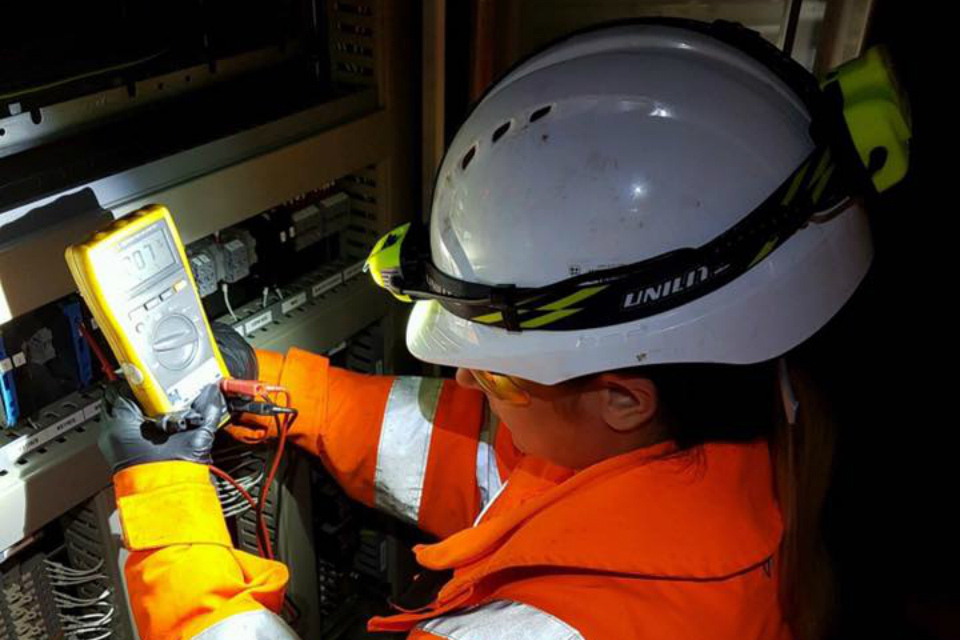Introduction to sector deals
Updated 28 June 2019
Partnerships between the government and industry on sector-specific issues can create significant opportunities to boost productivity, employment, innovation and skills.
We know that these partnerships can work – from our experience of decade-long partnerships such as the Auto Council and the Office for Life Sciences to more recent collaborations including tourism, creative industries, space and professional and business services.
The government is committed to extending these successful partnerships to other parts of the economy.
Aerospace

Jet turbine
This sector deal will build on our successes by positioning the UK to take advantage of the global move towards hybrid-electric and electric propulsion and to exploit valuable emerging markets such as drones and Urban Air Mobility.
The UK’s aerospace sector is a world leader in developing new technologies, generating well-paid jobs and sustainable growth across the country. The sector is hugely important to the UK economy, providing over 120,000 highly skilled jobs, most outside London and the south east, and with an annual turnover of £35 billion, the majority of which comes from exports to the rest of the world.
Artificial Intelligence

Illustration of AI face recognition
The government and the Artificial Intelligence (AI) sector have agreed a sector deal to boost the UK’s global position as a leader in developing AI technologies.
Taking immediate, tangible actions to advance our AI and data-driven economy Grand Challenge, this deal will anchor the UK as the go-to destination for AI innovation and investment.
AI’s potential is already well known: by one estimate it will add £232 billion to the UK economy by 2030. The UK is a recognised world leader in developing AI. Deepmind, Babylon and Swiftkey – which was backed by Innovate UK – are all globally renowned companies founded here.
The sector deal builds on the review by Professor Dame Wendy Hall and Jérôme Pesenti, ‘Growing the artificial intelligence industry in the UK’, which involved an extensive range of business leaders, academics and research councils.
Automotive

A car on the production line.
This sector deal builds on the government’s long-standing partnership with the UK automotive sector.
It ensures that the UK continues to reap the benefits from the transition to ultra-low and zero-emission vehicles by continuing to build the agile, innovative and cost competitive supply chain needed to secure international investment.
The UK automotive sector is a great success story. We are the third largest European car producer and have the highest productivity in Europe among major automotive producing nations. The sector employs 159,000 people directly in vehicle manufacturing, with an additional 238,000 in the supply chain.
Construction

A construction worker checking a meter.
The government and the construction sector, through the Construction Leadership Council, have agreed a sector deal to transform the productivity of the sector benefiting the wider economy.
Construction is one of the largest sectors in the UK economy – with a turnover of £370 billion, contributing £138 billion in value added to the UK economy and employing 3.1 million people (9% of the total UK workforce).
The deal will substantially boost the sector’s productivity, through greater investment in innovation and skills, creating new and well-paid jobs and maximising its export potential. This will also reduce the environmental impact, improve the efficiency and reduce whole life cost of new projects and buildings to help build the houses, schools, hospitals and major transport projects we need.
Creative industries

A man in a virtual reality headset holding 2 wireless controllers.
The government and the creative industries sector, through the Creative Industries Council (CIC), have agreed a sector deal to unlock growth for creative businesses.
The creative industries sector, which makes up over 5% of the UK economy and employs more than 2 million people, is one of the fastest growing and contributes £87 billion of GVA.
The sector deal builds on the independent review of creative industries, which was led by Sir Peter Bazalgette.
Life sciences

Illustration of DNA editing.
The government and the life sciences sector have agreed a multi-billion pound deal, ensuring that the UK remains at the forefront of innovation in this sector.
The sector deal will help ensure new pioneering treatments and medical technologies are produced in the UK, improving patient lives and driving economic growth. The deal involves substantial investment from private and charitable sectors and significant commitments in research and development from the government.
The sector is highly productive and export focused, generating £64 billion of turnover and employing over 233,000 scientists and staff. The UK is home to world-leading companies such as GSK and AstraZeneca, a strong small and medium-sized business sector, major health charities such as the Wellcome Trust and Cancer Research UK, and the NHS.
The Sector Deal builds on the Life Sciences Industrial Strategy, which was led by the sector and Professor Sir John Bell.
Nuclear

S300 atom
This sector deal builds on the government’s historical partnership with the UK nuclear sector.
It ensure that the UK’s nuclear sector remains cost competitive with other forms of low-carbon technologies to support our Clean Growth Strategy and Grand Challenge. Through adopting new construction techniques and innovative approaches to manufacturing, the deal will reduce the costs of building new reactors in a way that builds domestic supply chain capability and skills.
Offshore wind

Sunset of lots of offshore wind turbines at sea
This sector deal builds on the UK’s global leadership position in offshore wind and seeks to maximise the advantages for UK industry from the global shift to clean growth, consistent with the Clean Growth Grand Challenge.
Rail

Train lights
This sector deal sets out a new approach to the rail industry and the government working in partnership to transform the rail sector by taking actions to increase the use of digital technology, boost productivity, improve the service received by those who use our railways and build the skills of the UK workforce to capitalise on these opportunities.
The delivery of this sector deal will equip the railway for its strategic role as a driver of economic growth and to provide a positive experience for passengers and freight users through this century and beyond.
Tourism

St Michael’s Mount, England ©VisitBritain
The Tourism Sector Deal sets out how the government and industry will work in partnership to boost productivity, develop the skills of the UK workforce and support destinations to enhance their visitor offer.
